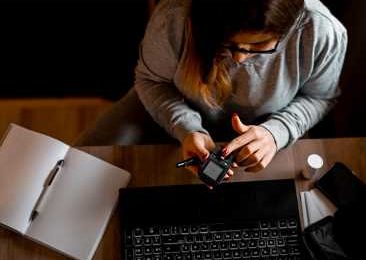
As greater Melbourne clicks into lockdown and cases of COVID-19 erupt in other states, the emotional highs and lows of battling the virus are coming into sharp focus.
And humans, being humans—the response to dire warnings about COVID-19 and the increase in cases has been mixed—some people are throwing caution to the wind, while others are back on the path of hoarding and strict isolation.
While most of us will cope with whatever versions of Lockdown II come into play, University of South Australia Professor in Mental Health Nursing, Nicholas Procter, says we could all experience a roller coaster of emotions.
“People with existing psychosocial and mental-health related concerns and those who are isolated from supportive relationships are at increased risk of experiencing difficult thoughts and feelings of fear, distress and threat,” Prof Procter says.
“Those with insecure or unstable housing, insecure employment and income will also be at increased risk of experiencing the situation as challenging as the impacts of restricted movement collides with the impacts on the economy. It is vital that we plan to take care of these people and ensure supports are built into the virus control strategy.”
Prof Procter says over our lifetime ongoing exposure to small stresses or even big stresses for short periods of time help to build our resilience.
“Stressful deadlines at work, studying for exams, times we have overcome an obstacle can help to build our ability to cope, our whole catalog of experiences build neurotypical capability,” he says.
But, he says, there are two terrible aspects to the COVID-19 threat.
“Because the virus is extraordinarily opportunistic and contagious, it takes away the very things that most human love to do—it undermines our capacity to socialize, reach out to one another and hold those we care for close. We are seeing families and friends driven apart by border closures, young people have been locked out of all their normal activities such as parties, clubbing, some sports and just being with friends. It is also messing with our notion of what is predictable and unpredictable, because just when things look under control, we see more infections, and new advice on how to behave, as experts understand more about the virus. We know we can’t hug and kiss, but maybe now we shouldn’t be laughing or singing together, we read masks were ineffective, but now people are being encouraged to use them.”
Prof Procter says there is considerable evidence that situations involving unpredictable and prolonged fear and threat, can lead individuals to develop increased hypervigilance for threat.
“To some extent our body and mind are doing what they wired to do for survival,” he says.
“But greater and heightened levels of threat detection can also lead to increased anxiety which, in turn, leads to increased hypervigilance, and this sets the brain into a vicious circle. We need to get the balance right between stress impacts that feature predictability and unpredictability. Operating from a position of hypervigilance can be protective but it can also see people misinterpret ambiguous situations and exaggerate minor threats, all of which have the potential to further increase feeling anxious and psychologically unsafe. And when people face a period of unpredictable or extreme prolonged stress, or even toxic stress, then they are at increased risk of responding in impulsive, unpredictable ways. So, we are seeing people vacillate from believing nothing is very different one day and behaving as though the pandemic doesn’t exist, to realizing the situation is dangerous and then feeling depressed.”
Prof Procter says right now, the fear detection system has been re-activated for many people and it can be difficult to turn off but regulation of our brains to create stronger equilibrium can be encouraged by:
- reassuring yourself and others that it’s OK to not be OK;
- taking time to process and make meaning out of what is happening;
- taking time for self-care and self-compassion
- having a daily routine or structure that is right for you;
- Where possible sharing family time, such as family meals together;
- Making sure you get regular exercise and proper amounts of sleep;
- Regulating or limiting exposure to media reports about the pandemic;
- Reaching out and connecting with others, if not in person, by phone or other means;
- Finding ways to help other people.
“By trying to be more future-focused and maintaining a positive routine, experts say you can develop a more positive mindset,” Prof Procter says.
Source: Read Full Article


